Overview
In order to succeed at learning violin or any instrument, you need to establish a good mindset. There are some simple things you can do to establish a good mindset and avoid feeling overwhelmed. These mindset hacks are not just for beginners, but for musicians working at any level. After 40+ years of learning music, I still need to be reminded of these things…
Six Secrets To Violin Success
1. Play Every Day
Consistent practice is the most important thing you need to do. Start off trying to play for just two minutes a day. This small, manageable target helps overcome the reluctance to start practicing. Often, you’ll find yourself playing longer than the planned two minutes. As this habit forms, you’ll naturally progress to lengthier practice sessions.
This may seem almost ridiculously basic and obvious. But if you stop practicing regularly, you’ll slowly but surely lose touch with your instrument. As we go through life changes (like having a baby!) daily practice may suddenly become a big challenge. How can you re-commit to learning the violin and music?
Here’s something that’s helping me: I meet with students once a week in an open practice session in the middle of the day. This has been a great way for me to stay on track with my own playing while also remaining connected to the FiddleHed community,
2. Practice Small Chunks
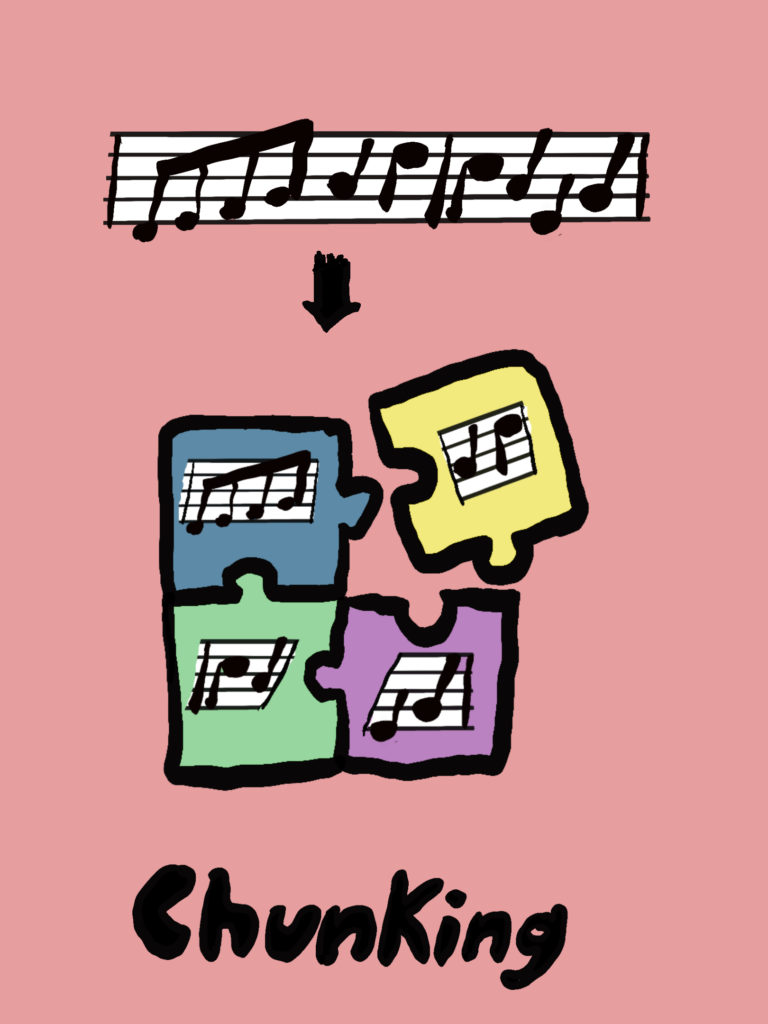
Simply break longer pieces into small chunks that you can improve in a single practice session. These small steps lead to small wins which motivate you to practice again tomorrow.
Once you can play the chunks well, chain them together into larger chunks. Practice the transitions between chunks.
If you practice one thing well it will improve everything else. Have confidence that if you use this process you can learn any song.
3. Play Ridiculously Slow
One of the simplest ways to get better at an instrument is to slow down when you practice. There’s a natural tendency to speed up. When that happens your hands and brain become anxious. 👎
Play something ridiculously slow. Give your hands the time they need to get to where they are going. Ask yourself: Is there less tension? 👁️
Gradually speed up with the metronome. Alternate between ridiculously slow and a comfortable medium tempo.
Playing ridiculously slow is physically easier, but can be mentally challenging because the piece starts to sound different.
Finally, playing ridiculously slow is the jedi-knight secret to playing fast. You deeply internalize the music. Then follow this with metronome practice to build speed.
4. Deliberate Practice
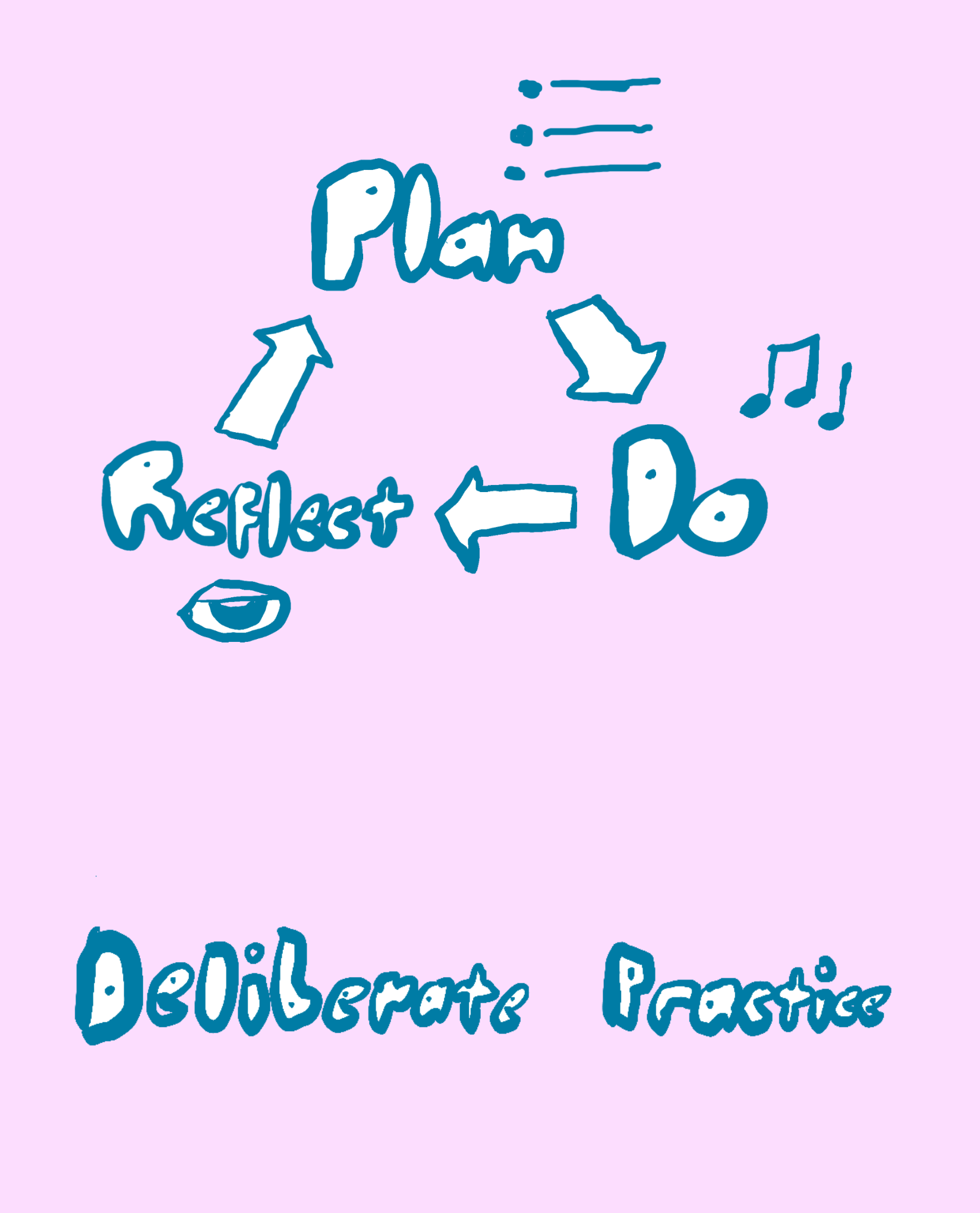
Don’t just play a tune once and move onto another one. Pick one to improve and focus on what needs work.
Use the Plan-Do-Reflect strategy. Plan what you’ll practice, then do the practice, and then reflect on how it went. “I could have probably done this part a little bit better. ” Then, begin the cycle again. Make a new plan, “I’m going to practice the hardest part of the hardest part with two bows.” then do it and then reflect again. If you do this for all the hard parts of the song then you will successfully learn it.
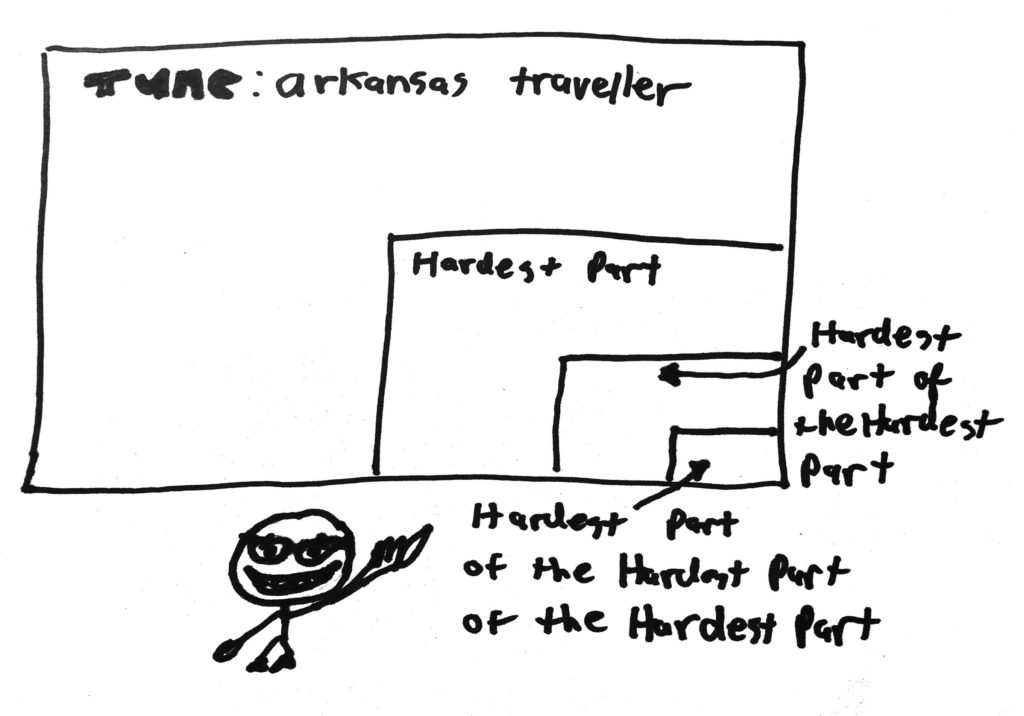
5. Adopt A Growth Mindset
Instead of saying “I can’t do it” say, “I can’t do it yet.” A Growth Mindset means you believe you are able to learn and grow. A Fixed Mindset means you believe you can’t change, that you’ll always be exactly the same as you are right now.
Knowing this means you have a choice. You can start to notice where you have a fixed mindset. And then you can turn that around. Start to think of challenges as a fun opportunity.
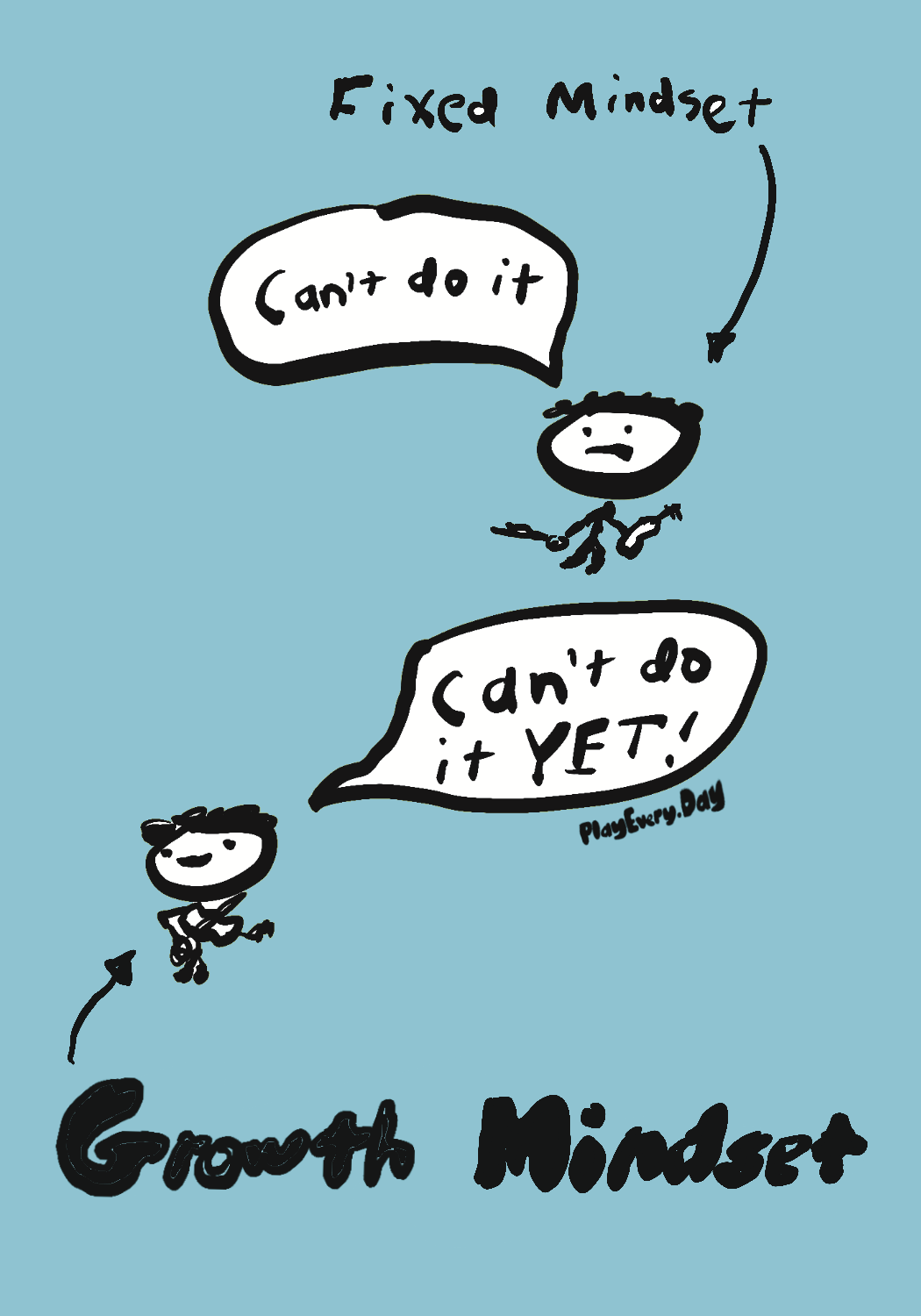
Remember that persistent practice is more important than talent.
6. Be Kind To Yourself
A lot of beginners defeat themselves by letting the critical voice dominate their thinking.
Ask this voice to take a step back while you play. Allow it to return when it’s time to evaluate your performance. This is the practice of kind awareness.
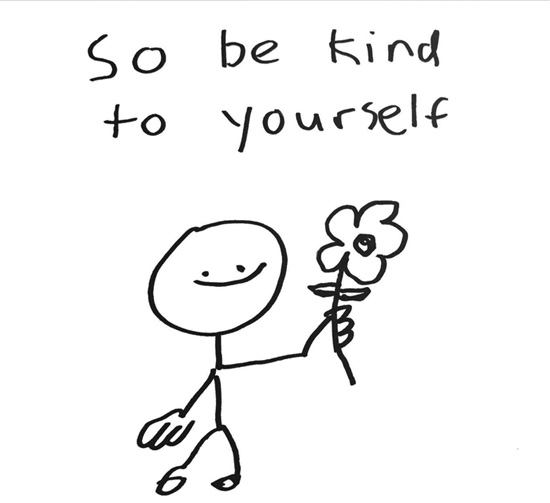
Here’s the Good news/Bad news part of this. First the Bad news: this critical negative self-talk never totally goes away. Just when you’re feeling confident, it rears its ugly head. Good news: the longer you play and do creative work, the better you learn to deal with the critical voice. That’s because you become more aware of the process. You come to know that the critical voice is there, but that it will eventually fade.
In fact, just reading and remembering these words will help you the next time you feel like giving up. Just remember that the negative self-talk is a temporary state.

Conclusion
I call these the secrets because these aren’t the things most folks try to learn. Most people want to learn fancy techniques like vibrato or play at lightning speed. But the truth is, the real keys to success are things you can start doing right now. What are you waiting for?
Two ways I can help you level up your fiddling
- Sign up for the FiddleHed newsletter below, then get high-value tips and lessons delivered to your inbox.
- Sign up for the Free Two-week Trial. You’ll get full access to all courses and group lessons. Plus, I’ll send you some free lessons tailored to your current skill level.
Thanks for being here 🙏
Further learning
Fiddling With Deliberate Practice
Fiddling With A Growth Mindset
Mindset by Carol Dweck

